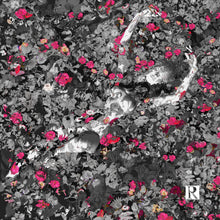Ophelia is a character in William Shakespeare's play Hamlet. She is a young noblewoman of Denmark, the daughter of Polonius, sister of Laertes, and potential wife of Prince Hamlet.
In Act 4 Scene 7, Queen Gertrude, in her monologue (There is a willow grows aslant the brook), reports that Ophelia had climbed into a willow tree, and then a branch broke and dropped Ophelia into the brook, where she drowned. Gertrude says that Ophelia appeared "incapable of her own distress". Gertrude's announcement of Ophelia's death has been praised as one of the most poetic death announcements in literature.
Later, a sexton at the graveyard insists Ophelia must have killed herself. Laertes is outraged by what the cleric says, and replies that Ophelia will be an angel in heaven when the cleric "lie(s) howling" in hell.
At Ophelia's funeral, Queen Gertrude sprinkles flowers on Ophelia's grave ("Sweets to the sweet"), and says she wished Ophelia could have been Hamlet's wife (contradicting Laertes' warnings to Ophelia in the first act). Laertes then jumps into Ophelia's grave excavation, asking for the burial to wait until he has held her in his arms one last time and proclaims how much he loved her. Hamlet, nearby, then challenges Laertes and claims that he loved Ophelia more than "forty thousand" brothers could. After her funeral scene, Ophelia is no longer mentioned.
In this piece, color is a major source of symbolism in the pocket square and in the play of Hamlet according to Andrew Gurr. Andrew reference's Ophelia's "virginal and vacant white" would have conveyed specific and gendered associations. Her action of offering wild flowers to the court suggests, some argues, a symbolic deflowering, while even the manner of her 'doubtful death', by drowning, carries associations with the feminine.








